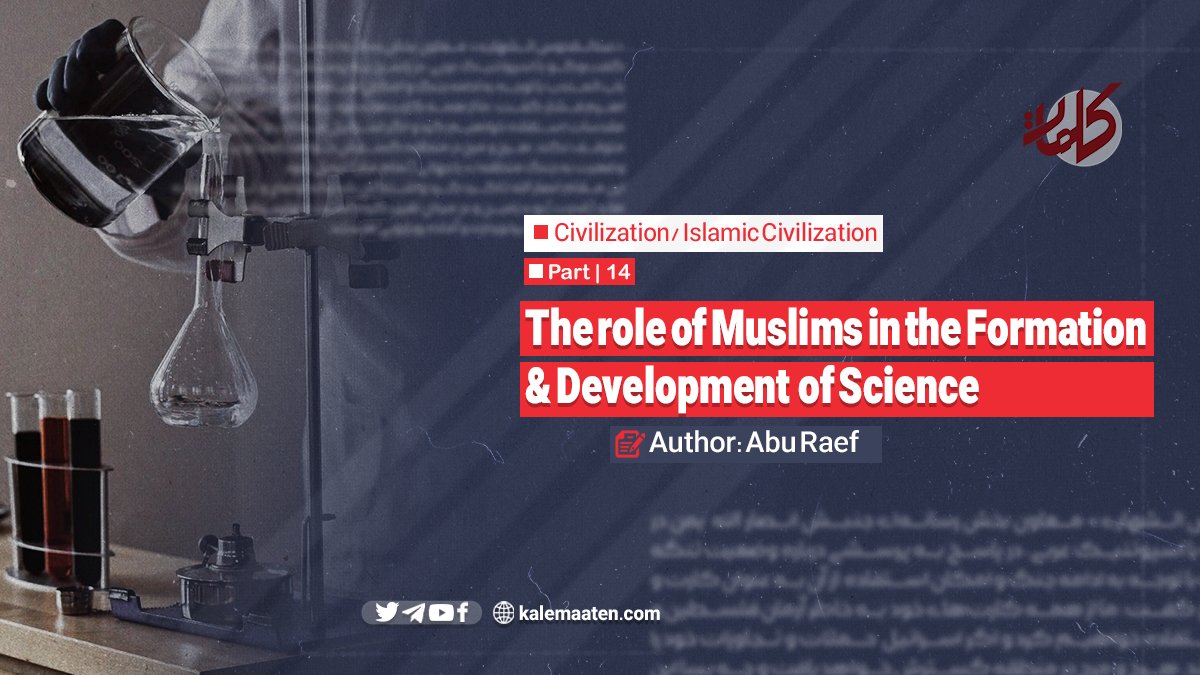Author: Abu Raef
The Role of Muslims in the Formation and Development of Sciences (Part 14)
The Role and Specialization of Muslims in Branches of Medical Sciences
Among the medical sciences in which Muslims achieved skill and specialization, there are numerous fields that have played a fundamental role in the development of this knowledge. In the previous sections, we mentioned three of the greatest Muslim physicians and their role in the formation of medical sciences. But apart from these prominent individuals, Muslims have also shown remarkable initiatives and innovations in various other branches. One of these branches that has received a significant impact from their efforts is surgery.
Surgery; From an Unimportant Occupation to a High-Ranking Science
Surgery, which was once ranked among low-value professions such as cupping, shaving, and cauterization, was moved from this status by Muslims and turned into a scientific and specialized field. Muslim physicians, through fundamental and creative reforms, elevated this field to an advanced level and completely changed its course. For this reason, “Mahmoud Al-Hajj Qasim Muhammad” writes:
“For a long time, the science of surgery was the monopoly of cupping and barbers. Under the supervision of physicians who had gained their knowledge from the works of Hippocrates, Paul and other ancient Greek physicians, they performed simple surgeries such as cauterization, vein puncture and cutting; but with the emergence of a group of specialists in this technique among Muslims, great strides were taken in the renewal and innovation of this field.
Muslim Innovations and Advances in Surgery
Muslims made many innovations in this high-ranking field. For example: They used substances such as hashish and opium to anesthetize patients. They used animal intestines to stitch wounds. They used alcohol in medical procedures.
Among the greatest Muslim physicians who played a prominent role in the science of surgery, the following individuals can be mentioned:
-
Abul-Hasan ibn Zayn al-Tabari;
-
Muhammad ibn Zakaria al-Razi;
-
Ali ibn Musa al-Majusi al-Ahwazi;
-
Abu Ali Sina;
-
Abul-Qasim al-Zahrawi;
-
Ibn Zuhr;
-
Musa ibn Maimon;
-
Ibn al-Qaf.
Among these names, Abul-Qasim al-Zahrawi (known as the Imam of Surgery) holds a special place. He is considered one of the greatest geniuses of surgery in the history of Islam. “Ahmad Isa Bek” writes about him: “Abul-Qasim al-Zahrawi achieved various techniques in surgery and was recognized as a pioneer in this field. He separated surgery from other medical fields and based it on the science of dissection and anatomy.
Unfortunately, many of the innovations of Zahrawi and other Muslim scientists have been recorded in the names of Western scientists over time and their achievements have not been attributed to Islamic history.
Before Zahrawi, Muhammad ibn Zakariyya al-Razi was the first physician to distinguish surgery from other branches of medicine. He emphasized that surgeons must master the science of dissection and the location of organs in the human body. He presented this knowledge as a prerequisite for any surgical procedure and emphasized its importance in the training of surgeons.
The Role of Muslims in Skull and Brain Surgery
One of the important fields in which Islamic scientists and physicians have had a tremendous impact is skull and brain surgery. Among the thinkers who have presented valuable opinions and achievements in this field, we can mention Ali ibn Abbas Majusi, Ibn Sina, Al-Zahrawi, Najib al-Din Samarqandi and Baghdadi.
Ali ibn Abbas Majusi, who was a prominent Zoroastrian physician and had close scientific ties to the Islamic medical community, identified and classified the types of skull fractures in his works. He distinguished between superficial, deep and destructive fractures and mentioned a special type of fracture called hairline fractures. Due to their minor nature, these types of fractures remain hidden from human sight.
Ibn Sina, a prominent philosopher and physician, has provided important information about the structure of the skull and its characteristics. He emphasized that the bones of the skull, unlike other bones in the body, are connected by fibrous joints and are immobile. He also explained that the nature of the bones of the skull is such that they withstand less force than other bones.
Ibn Sina also had some recommendations regarding treatment methods. He believed that patients with cerebral edema should be irrigated to reduce excess body water. He also mentioned using special methods to control anesthesia and restore consciousness.
Abul Qasim Al-Zahrawi, a renowned physician and surgeon, made great strides in skull surgery. He designed and invented several instruments for performing this type of surgery, some of which are still in use today.
Najib Al-Din Samarqandi, one of the prominent physicians of his time, mentioned using methods to prevent the spread of wounds caused by skull injuries. He recommended that after venipuncture, the patient’s body be soothed and the infection removed from the body by using enemas and natural fruit juices[4].
The role of Muslims in other branches of surgery
In addition to neurosurgery, Muslim physicians have also been active in many branches of surgery and have made significant achievements. Among these branches are the following:
-
Abdominal and urinary tract surgery: Muslims provided advanced methods for treating internal body problems, including urinary tract repair and cesarean section surgery.
-
Wound dressing and repair: They invented methods for stitching wounds from the inside of the body so that the stitches were not visible on the outside.
-
Larynx and respiratory surgery: For patients with respiratory problems, they designed special tubes that facilitated breathing.
-
Tonsil surgery: Abul Qasim Al-Zahrawi was a pioneer in this field and improved the methods of tonsil surgery.
-
Cosmetic surgery: Muslims were the first to establish cosmetic surgery. They invented methods to repair and improve the appearance of lips, noses, and ears that were cut or defective.



